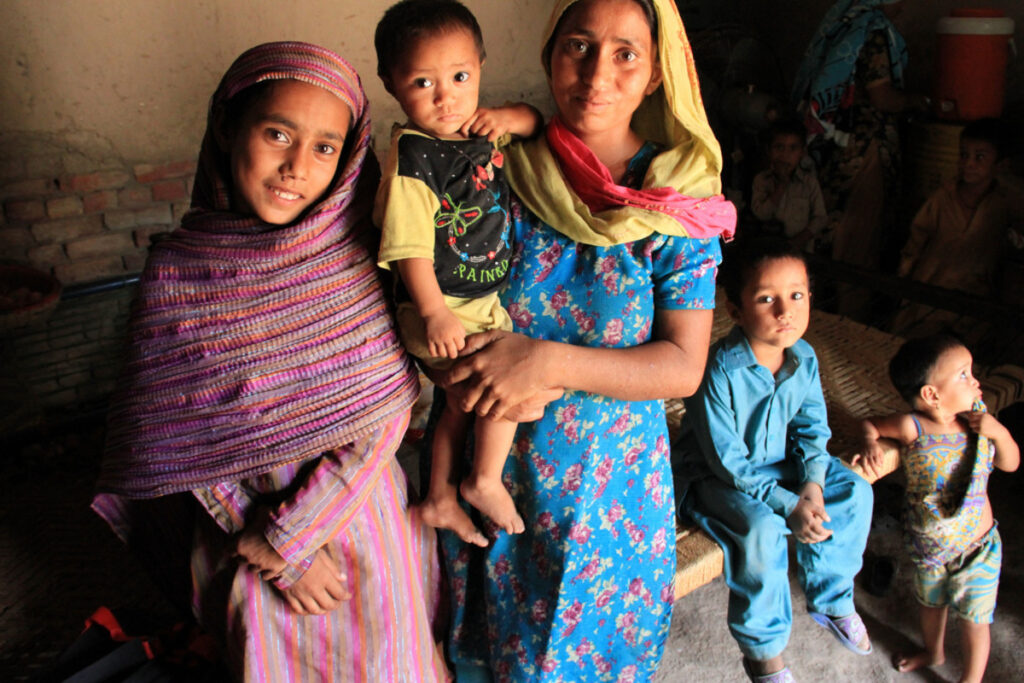The vaccine

The first to use science to prevent disease, rather than cure it, was the English physician Edward Jenner, who in 1796 developed the first vaccine in history. He proved his success with a controversial experiment in which he injected James Phipps “An eight-year-old boy, the son of his gardener – pus from a smallpox patient.”
Then smallpox ravaged Europe and killed 400,000 people every year. He fattened mostly with children, but he did not respect to nobody. One in three affected died – like the King of France Louis XV – and many survivors were left blind or with the face full of scars – like George Washington, the first president of the United States – that left after drying a multitude of bumps with pus. But popular tradition said that milkmaids were immune to the disease, just like people who already had it suffered. In those days when there was a fear of being disfigured by smallpox, the smooth and smooth faces of milkmaids turned into an erotic myth. They were the main characters of the theatrical pieces of fashion.
With the exception of access to drinking water, there has been no other preventive or therapeutic measure, not even antibiotics, that has had a greater effect in reducing mortality in the world’s population than the vaccine.
It is estimated that the introduction of vaccines in the world has prevented 5 million deaths from smallpox annually, 2.7 million from measles, 2 million from neonatal tetanus, 1 million from pertussis, 600,000 from paralytic poliomyelitis, and 300,000 from diphtheria.
The year 1885 will be a memorable one for medical science: the application of the vaccine against rabies by Louis Pasteur in France.
Today, vaccines are one of the success stories of modern medicine. Smallpox was declared eradicated of the world in 1977. Polio was officially eliminated from the United States and the rest of the Western Hemisphere in 1991. While 13,000 to 20,000 cases of polio were reported each year in the United States prior to availability of the vaccine, no cases were reported in 2000! Although there were 12,230 deaths from diphtheria in the In the United States in 1921 (long before the vaccine was available), there was only 1 case of diphtheria reported in 1998.
The list of serious diseases that have been eradicated or whose numbers have been dramatically reduced by vaccines, it continues to rise, from mumps to measles, from rubella to tetanus.
In his articles on the vaccine Jenner already used the word virus, but it was not until a century later that it began to be understood what were viruses and why by injecting harmless or weakened versions of these infectious particles, the body makes chemical defenses, antibodies, that protect you from the malignant virus. Jenner paved the way for immunology, as Antibodies are also key in the treatment of allergies and AIDS, or in vaccines for yellow fever, flu, tuberculosis and perhaps soon malaria. Smallpox continued to kill (more than 300 million people in the 20th century) until all countries took vaccinations seriously. The WHO declared the disease eradicated on May 8, 1980.
On mother’s day
BY BRUCE LANSKY

On Mother’s Day it isn’t smart
To give your mom a broken heart.
So here are thing you shouldn’t say
To dear old mom on Mother’s Day:
Don’t tell here that you’ll never eat
A carrot, celery, bean, or beet.
Don’t tell her you think smoking’s cool.
Don’t tell her you’ve dropped out of school.
Don’t tell her that you’ve drowned the cat.
Don’t tell her that she looks too fat.
Dont’t tell her when you’re grown you’ll be
A starving poet—just like me.
—————————————————————————
USA National Teacher of the year 2021
Juliana Urtubey, a Colombian, is the teacher of the year in the USA
Juliana migrated to the United States as a child and she has been working as a teacher in the state of Nevada for 11 years.
She was personally congratulated by the first lady, Dr. Jill Biden. she who surprised her with a bouquet of flowers and a certificate, thanking her for her contribution to education in the United States. Biden, who is also a teacher, told CBS that Urtubey is “the epitome of what it is to be a great educator.”
Urtubey noted that the teaching challenges caused by the COVID-19 pandemic have helped educators develop a flexible approach that finds students wherever they are.
Her students have described her as “good-hearted” and a “good leader,” and have even compared her to the “Magic School Bus” character, Ms. Frizzle.
“She, like, even had the little earrings that Mrs. Frizzle had!” said a young student.
International Women’s Day
March 08

The world annually celebrates International Women’s Day on March 8, honoring all the women who lead the global fight for women’s rights.
The crisis has highlighted both the centrality of their contributions and the disproportionate burdens they bear.

